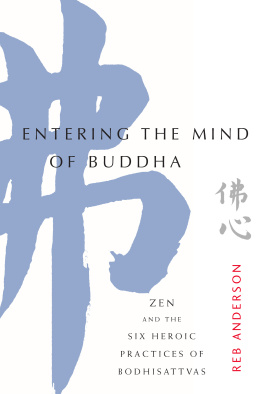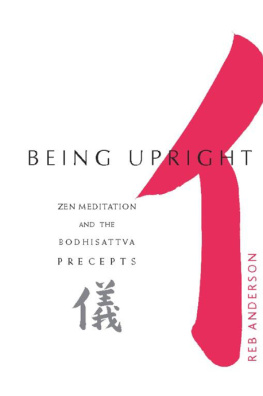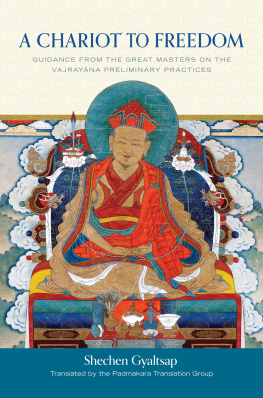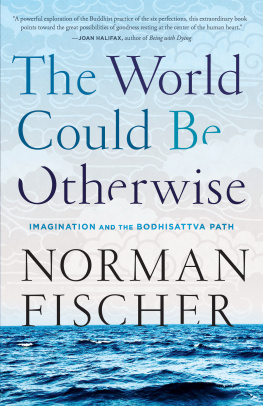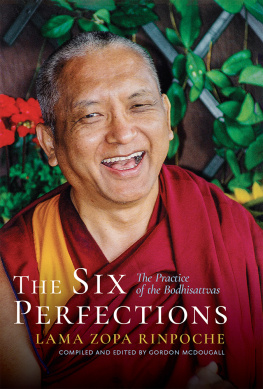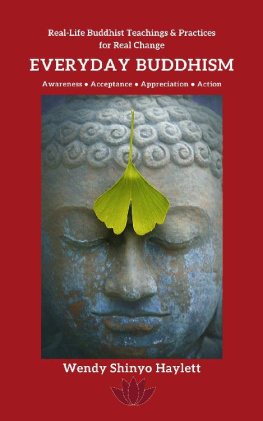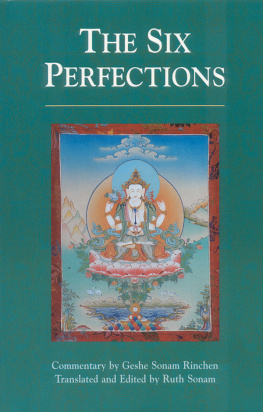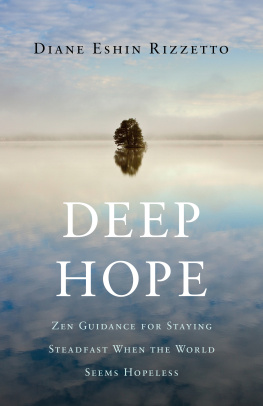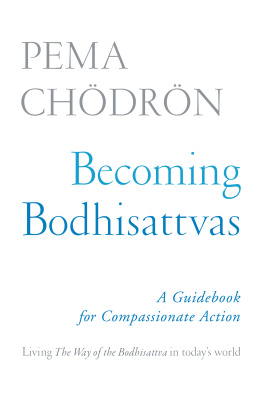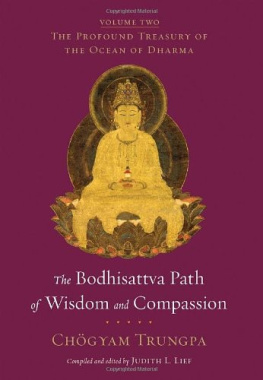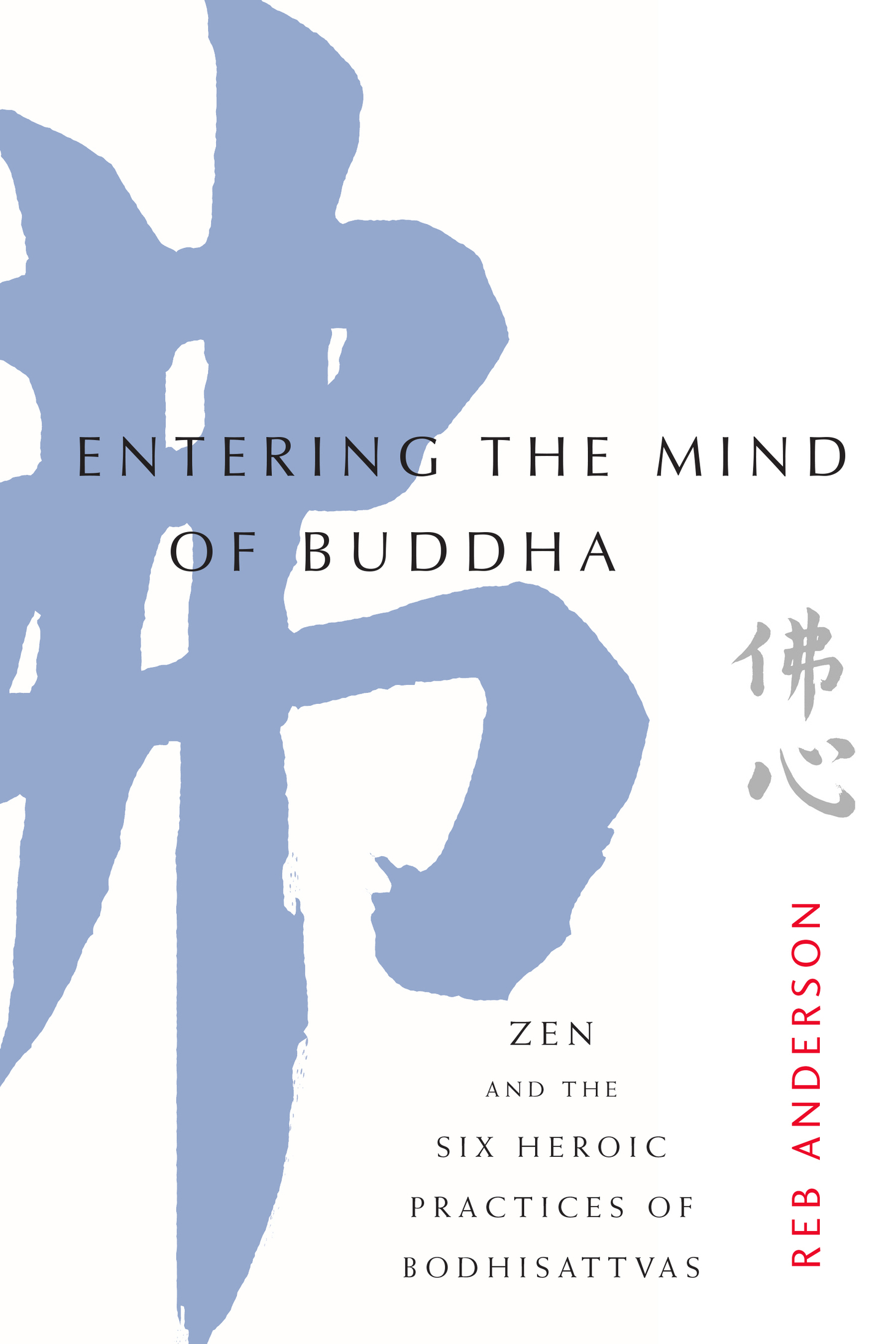ACKNOWLEDGMENTS
This book was born out of a teaching that I offered during a weekend retreat at the Mt. Madonna Center in 2011 titled, Working for the Welfare of the World. The retreat theme was the six paramitas, the basic forms of bodhisattva training.
Following the retreat, one of the participants, Karen Mueller, had a conversation with another participant, Shokuchi Deidre Carrigan, in which they discussed their experience of the weekend. They shared the view that the teachings had offered a comprehensive view of Zen practice that was new to them and included deeply helpful ways of understanding Zen practice within the context of daily life and family life. This shared vision was one of the main inspirations for the book.
Sometime after that conversation, Karen asked if she could transcribe the talks and discussions and work on transforming them into a book. In response I said something like, If you would find such work enjoyable and encouraging to your practice, I could support that. However, if you lose interest and the work is not enjoyable anymore, please dont feel any obligation to continue and please dont have any expectation of the work being published. I dont know if I will be able to be involved in it.
Karen started working with great devotion, diligence, and enthusiasm. After many months of transcribing and editing the talks, she began asking various dharma friends for help and feedback, to which they responded generously. Friends came together to read the early drafts. The material was re-edited many times with the assistance of friends, and additional material was added from other teachings I gave in 2011 up to the present.
Many people provided helpful feedback as this material made the transition from oral teachings into written form. This includes a group of intrepid readers from the Arcata Zen Group: Milli and Michael Quam, Lynda McDevitt, and Barbara Maderas. As the manuscript continued to evolve, David LaFever, also from the Arcata Zen Group, provided additional feedback. Others who read the manuscript in various forms and provided suggestions and encouragement include: Bert Dyer, Roberta Werdinger, and Fred Sampson. In spring 2017, John Sheehy read a portion of the material and encouraged submission of the manuscript to Shambhala.
The early versions of the manuscript provided a foundation within which later teachings on these topics could be incorporated. In the later phase of the editing, Karen gave me tremendous encouragement and feedback and incorporated our conversations into the manuscript. Also in the later phases of this work, she worked closely with the editors at Shambhala.
I would also like to acknowledge some of the many other people who participated in this endeavor.
Thanks to Brajesh Jerry Friedberg who has invited me to offer weekend programs at the Mt. Madonna Center for more than twenty years. Thanks are also due to the people who attended the initial teaching at the Mt. Madonna Center in 2011 for their kind attention and discussion, which helped to illuminate these teachings. Some of those present included: Shokuchi Deidre Carrigan, Elizabeth and Leon Olson, Paul and Kate Page, Jack and June Erwin, Marjorie Yasueda and Dale Knutsen, Judy Pruzinski, Angela Nielsen, Jessica Thomas, Fred Sampson, Dona Haber, Amanda Kairys, Bruce Christie, Elizabeth Ury, Susan Leslie, Betsy Appel, and Lucetta Swift. Additional material was drawn from other teachings at the Mt. Madonna Center, Green Gulch Zen Center, No Abode Temple in Mill Valley, the Yoga Room in Berkeley, Tassajara Zen Mountain Monastery, weekend workshops in Santa Barbara, CA, and private conversations with students. I offer my appreciation and gratitude to all of those who participated in these teachings for their thoughtful attention and questions.
I give my thanks to members of my family for allowing me to share some of their stories and examples of what I have learned from them.
Paul Page diligently recorded the original teaching at the Mt. Madonna Center and made additional recordings at teachings given at Mt. Madonna and in Santa Barbara. Charlie Wilson recorded teachings given at No Abode and the Yoga Room and other places, which also became a part of this manuscript. He has also created an archive for my teachings on the Engage Wisdom website where these and many other audio teachings can be found.
Dona Haber was one of the participants in the original program at Mt. Madonna, and she provided warm, consistent support and assistance in editing this manuscript throughout the many stages of its development. Eleanor Howe was crucial to the process of revising and refining the chapters on concentration and wisdom during the three-month Practice Period at Tassajara Zen Mountain Center in the fall of 2017. Eleanor also provided substantial editorial assistance on the entire manuscript prior to its submission to Shambhala.
Thanks also to Dave ONeal at Shambhala who expressed his initial support and interest in this book from the beginning of this publication process and to our editor, Matt Zepelin, who has provided insight, enthusiastic support, and editorial assistance to bring this manuscript to publication, as well as to our kind assistant editor, Emily Coughlin.
This book would not exist without the efforts of all of these people. I feel profound gratitude and appreciation to all those who have helped throughout this process. I pray that the fruit of these labors brings each person who contributed and many other beings great peace and encouragement in the practice of the bodhisattva path.
ABOUT THE AUTHOR
R EB A NDERSON is a lineage-holder in the Soto Zen tradition. Born in Mississippi, he grew up in Minnesota and left advanced study in mathematics and Western psychology to come to San Francisco Zen Center in 1967. He practiced with Suzuki Roshi, who ordained him as a priest in 1970 and gave him the name Tenshin Zenki (Naturally Real, The Whole Works). He received dharma transmission in 1983 and served as abbot of the Zen Centers three training centers (City Center, Green Gulch Farm, and Tassajara Zen Mountain Center) from 1986 to 1995. He is particularly interested in Buddhist yoga, philosophy, and psychology, and in the relationship of wisdom and compassion to the social and ecological crises of our times.
Tenshin Roshi lives with his friends and family at Green Gulch Farm and continues to teach at the Zen Center. He is author of Warm Smiles from Cold Mountains: Dharma Talks on Zen Meditation, Being Upright: Zen Meditation and the Bodhisattva Precepts, and The Third Turning of the Wheel: Wisdom of the Samdhinirmocana Sutra. In addition, his writings have been published in Wind Bell: Essays and Lectures from the San Francisco Zen Center, 19682001, and in numerous Buddhist periodicals including Inquiring Mind, Tricycle, Turning Wheel, and Shambala Sun (now Lions Roar).
Reb leads meditation retreats and classes nationally and internationally. Other information, including his teaching schedule, can be found at www.rebanderson.org. Audio recordings of many of his dharma talks are available at www.rebanderson.org/talks.
Sign up to receive news and special offers from Shambhala Publications.
Or visit us online to sign up at shambhala.com/eshambhala.

